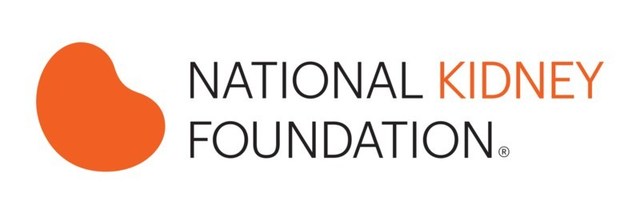Kidney Patients Interested and Anxious on Xenotransplantation Clinical Trials
National Kidney Foundation Releases Voice of the Patient Report on Kidney Xenotransplantation Based on EL-PFDD meeting
NEW YORK, Dec. 17, 2024 /PRNewswire/ -- Pig kidneys may be the key to addressing the nation's severe organ shortage crisis, and patients are eager for clinical trials to begin. That's a key finding in the National Kidney Foundation's (NKF) newly released Voice of the Patient report, based on last year's Externally-Led Patient-Focused Drug Development (EL-PFDD) meeting in Bethesda, MD. Patients battling the physical and emotional toll of kidney disease are urging action to advance clinical trials in xenotransplantation, according to the NKF report.
Xenotransplantation—using pig or other non-human cells, tissues, and organs to address human medical conditions—holds potential to address the urgent shortage of transplantable organs. Every day, an average of fourteen Americans die waiting for a life-saving organ transplant, underscoring the need to explore alternative solutions. Currently, kidney xenotransplantation is still in early stages and approved only under rare and emergent circumstances. No clinical trials have been permitted by the FDA. Future trials will be essential to assess the safety and efficacy of kidney xenotransplantation.
The NKF meeting was developed jointly with the FDA and supports the FDA's Patient-Focused Drug Development (PFDD) Initiative to "systematically obtain patient perspectives on specific diseases and their currently available treatments". The FDA provided guidance on the meeting agenda and discussion topics. This was NKF's seventh EL-PFDD meeting, but the first meeting of its kind to gather patient perspectives on an emerging treatment (as opposed to a specific disease).
"Xenotransplantation represents a transformative opportunity to address the organ shortage crisis, but it must be guided by the lived experiences of the most important stake holders in this process - patients and their care partners," said Dr. Vineeta Kumar, Professor of Medicine at the University of Alabama and EL-PFDD co-chair. "The insights shared by stake holders during this meeting underscore the urgency of advancing research responsibly while ensuring that patient safety, concerns, and hopes remain central to every step of the process."
Participants in the EL-PFDD meeting voiced frustration over the years-long wait for clinical trials and expressed a strong desire to see the process accelerated. Patients described the debilitating effects of dialysis—exhaustion, isolation, and an inability to live normal lives—as driving their willingness to participate in trials, even with associated risks.
The Voice of the Patient report amplifies the voices of those affected, capturing both their hopes and concerns about this emerging field of medicine. The quotes and testimonies included came directly from patients and care partners who have experienced kidney disease and the currently available treatments. The EL-PFDD meeting and subsequent report provide the FDA, product developers, clinicians, academic researchers, and the public an opportunity to hear in-depth patient views on the challenges of living with kidney disease, their views on xenotransplantation, concerns about clinical trials and the factors most likely to affect their willingness to receive a xenokidney transplant and/or participate in a xenokidney transplant clinical trial.
Voice of the Patient highlights an urgent call to action from kidney patients and their families, who view xenotransplantation as a crucial and transformative solution. Participants shared deeply personal accounts of the devastating impact of kidney disease and the limited options currently available. For many, dialysis was described as "dehumanizing" and a significant barrier to living a full life. One participant shared how their daughter's life was "tethered to being on a machine every night for 10 hours," illustrating the profound restrictions that dialysis imposes.
Frustration with the slow pace of clinical trial development was another recurring theme. Some patients remarked we are only where we are today in transplantation because of the risks taken decades ago. One participant remarked that it is "time to take that next step." Patients expressed their willingness to participate in clinical trials despite the risks, driven by the hope of a better quality of life. Many emphasized that xenotransplantation offers the potential to bypass the misery of dialysis and the agonizing uncertainty of waiting for a transplant.
Polling data from the meeting underscored this urgency, with a majority of participants advocating for faster progress in clinical trials. For patients and their families, the risks of inaction—including preventable deaths and prolonged suffering—outweigh the uncertainties of xenotransplantation. Their voices reflect a powerful message: advancing clinical trials is not just a scientific imperative; it is a vital step to alleviate the immense burden on patients and their families.
"This is a watershed moment for the future of transplantation," said Kevin Longino, CEO of NKF and a transplant recipient. "NKF is committed to ensuring that patient voices shape the development of xenotransplantation to maximize its life-saving potential."
As next steps, NKF is calling on researchers, regulators, and policymakers to act on these patient insights by prioritizing the development of clinical trial frameworks for kidney xenotransplantation. As a cornerstone of its advocacy, the Voice of the Patient report will help guide this work, ensuring that patient perspectives remain central. To explore the Voice of the Patient report and other resources, visit www.kidney.org/el-pfdd-xeno.
About Kidney Disease
In the United States, more than 35 million adults are estimated to have kidney disease, also known as chronic kidney disease (CKD)-and approximately 90 percent don't know they have it. About 1 in 3 adults in the U.S. are at risk for kidney disease. Risk factors for kidney disease include diabetes, high blood pressure, heart disease, obesity, and family history. People of Black or African American, Hispanic or Latino, American Indian or Alaska Native, Asian American, or Native Hawaiian or Other Pacific Islander descent are at increased risk for developing the disease. Black or African American people are about four times as likely as White people to have kidney failure. Hispanic people experience kidney failure at about double the rate of White people.
About the National Kidney Foundation
The National Kidney Foundation is revolutionizing the fight to save lives by eliminating preventable kidney disease, accelerating innovation for the dignity of the patient experience, and dismantling structural inequities in kidney care, dialysis, and transplantation. For more information about NKF, visit www.kidney.org.
![]() View original content to download multimedia:https://www.prnewswire.com/news-releases/kidney-patients-interested-and-anxious-on-xenotransplantation-clinical-trials-302334003.html
View original content to download multimedia:https://www.prnewswire.com/news-releases/kidney-patients-interested-and-anxious-on-xenotransplantation-clinical-trials-302334003.html
SOURCE National Kidney Foundation


